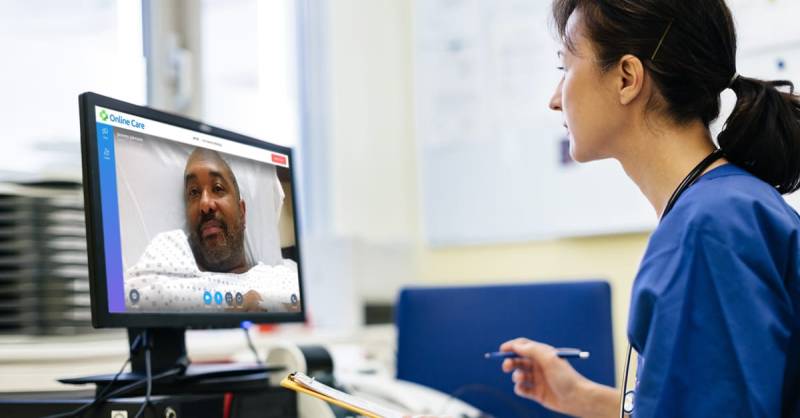
Pakistan spends merely 0.9 percent of it's GDP on healthcare annually. We currently have a grossly inadequate hospital bed to population ratio as per WHO standards. The estimated 126,000 hospital beds satisfy only 20 percent of our requirements. About 21000 are in the armed forces, 30,000 are in public sector while the significant majority are in the privately run healthcare system. None of these systems are independently capable, both in terms of capacity or intellectual capital, to carry the usual burden of healthcare responsibilities beyond their limited domains.
It is obvious that with a' broken' healthcare system, our capacity to respond to a global and national crisis like COVID-19 will be overwhelmed in days. The absence of a central functional coordinating body having a national database of generalists, specialists and sub- specialists such as PMDC which is still in existential crises, does not help. Additionally ,an absence of an organized database of primary care and sub-specialized Nurses, and absence of a regulatory body for allied health professionals, overseeing respiratory technicians for example, calls for an urgent need for a Covid 19 healthcare taskforce. The taskforce would work with NADRA, PMDC, PNC and HEC to rapidly develop a database of healthcare professionals who can be rapidly deployed both physically and remotely through telehealth services, before the proverbial tsunami heads our way. This is barring "Divine" intervention that usually comes to those who help themselves, as asserted in the Quran.
It is no surprise that when a national disaster strikes, it is the overburdened public sector which bears the brunt, with the Armed forces hospitals serving as a backup mainly for their primary constituency. The vast majority of private hospitals and private practitioners simply wait on the sidelines for the 'overflow'. It is a pity that a lot of sub- specialists in Pakistan with structured training in Acute Care and sub-specialties are not utilized by the nation up front.
The current situation is a grave challenge but also offers an opportunity in disguise. The healthcare administrators ought to put together a healthcare delivery system pairing public and the private enterprise both through onsite and remote consultation services. Telehealth through videoconferencing has been successfully implemented in several hospitals lately. There is no reason as to why the government hospitals should not utilize services of sub specialists from private sector, at least remotely. For instance, consultants on critical care, infectious disease and emergency Medicine could show up on prime time Television. Their services could be made available to far flung towns and villages, where the institutionalized specialties are unavailable.
My recent experience with telenephrology offering remote dialysis rounds and tele-consultation in clinical Nephrology suggests that this experience can be utilised nationally to remove the bottlenecks in healthcare disparity, even post Corona days. I believe a team is being set up in the federal areas at the behest of the government. It would be only logical to plan on a national level and lead/ coordinate a national level healthcare response commensurate with the enormity of the task. The opportunity missed could be catastrophic.
Stay safe, Pakistan.
It is obvious that with a' broken' healthcare system, our capacity to respond to a global and national crisis like COVID-19 will be overwhelmed in days. The absence of a central functional coordinating body having a national database of generalists, specialists and sub- specialists such as PMDC which is still in existential crises, does not help. Additionally ,an absence of an organized database of primary care and sub-specialized Nurses, and absence of a regulatory body for allied health professionals, overseeing respiratory technicians for example, calls for an urgent need for a Covid 19 healthcare taskforce. The taskforce would work with NADRA, PMDC, PNC and HEC to rapidly develop a database of healthcare professionals who can be rapidly deployed both physically and remotely through telehealth services, before the proverbial tsunami heads our way. This is barring "Divine" intervention that usually comes to those who help themselves, as asserted in the Quran.
It is no surprise that when a national disaster strikes, it is the overburdened public sector which bears the brunt, with the Armed forces hospitals serving as a backup mainly for their primary constituency. The vast majority of private hospitals and private practitioners simply wait on the sidelines for the 'overflow'. It is a pity that a lot of sub- specialists in Pakistan with structured training in Acute Care and sub-specialties are not utilized by the nation up front.
The current situation is a grave challenge but also offers an opportunity in disguise. The healthcare administrators ought to put together a healthcare delivery system pairing public and the private enterprise both through onsite and remote consultation services. Telehealth through videoconferencing has been successfully implemented in several hospitals lately. There is no reason as to why the government hospitals should not utilize services of sub specialists from private sector, at least remotely. For instance, consultants on critical care, infectious disease and emergency Medicine could show up on prime time Television. Their services could be made available to far flung towns and villages, where the institutionalized specialties are unavailable.
My recent experience with telenephrology offering remote dialysis rounds and tele-consultation in clinical Nephrology suggests that this experience can be utilised nationally to remove the bottlenecks in healthcare disparity, even post Corona days. I believe a team is being set up in the federal areas at the behest of the government. It would be only logical to plan on a national level and lead/ coordinate a national level healthcare response commensurate with the enormity of the task. The opportunity missed could be catastrophic.
Stay safe, Pakistan.
